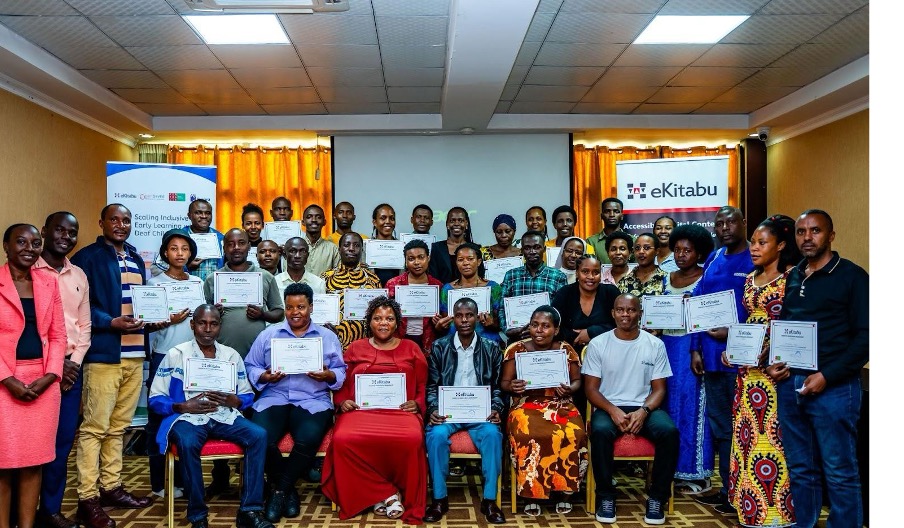
Rwanda’s first Parents Awareness Workshop has been described as a resounding success, setting the pace for additional activities to encourage inclusive learning and transform lives.
Held from 19-21 March, the workshop was held under the GPE-KIX-funded project, “Scaling Inclusive Early Learning with Deaf Children”. It brought together parents, head teachers, and Deaf role models.
Nadia Nibagwire, a Deaf role model and facilitator, shared her life story, prompting parents to similarly open up about the stigma and isolation they have faced. Some parents spoke emotionally about being abandoned by their partners or blamed for their child’s hearing loss.
This honest sharing wasn't just therapeutic; it built community and trust.
“Before this workshop, I didn’t know how to communicate with my child,” said a father. “I thought only teachers could. Now I feel I can be a part of their learning.”
Seven Pillars
Each of the PAW’s seven core modules was brought to life through discussion, games, role play, and real-life stories:
- Understanding Deafness: Parents explored the myths, facts, and lived experiences of Deaf individuals.
- Interaction and Communication: Interactive quizzes revealed how little (or how much) participants knew—and how eager they were to learn.
- Positive Parenting and Social Skills: Through role play, families practised nurturing relationships and encouraging behaviour.
- Sign Language and Language Development: A video of a Deaf parent signing with a baby sparked awe—and hope. Parents were eager to learn signs and even requested district name signs in Rwandan Sign Language, which they learnt on the last day.
- Deaf Culture and Human Rights: Participants explored how embracing Deaf culture can empower children.
- Risk and Protection Factors: Topics like abuse and safety were addressed openly, with resources provided.
- Sexual Reproductive Health and Gender Based Violence: Despite discomfort, parents bravely discussed how to protect and educate their children. A Deaf teacher shared her painful story about starting menstruation without support—highlighting the urgency of communication at home.
The PAW initiative, headed by a consortium led by eKitabu alongside Kentalis International, Open Development for Education, and Busara Behavioural Insights, recognizes that inclusive early learning begins not in the classroom, but in the family living room. When homes become sign language-rich environments, Deaf children thrive emotionally, socially, and academically.
Parental Engagement
Even those hesitant to discuss topics like puberty and gender based violence obtained new perspectives. “I used to think these conversations were for older kids. But now I know I must start early—and in a language my child understands,” said a mother.
Globally, millions of children are still out of school; children who are Deaf and hard of hearing are disproportionately affected. Stigma, limited awareness, and lack of communication skills often leave parents feeling helpless and disconnected from their own children.
The PAW initiative addresses this gap directly. It helps parents understand deafness, gain confidence in using sign language, and become advocates for their children. The workshop also trains selected parents to serve as community facilitators who extend the impact to others in their communities.
Seeds of Change
The workshop didn’t just educate—it planted seeds of change. With newly trained community facilitators, parents will now take their knowledge into neighbourhoods, schools, and support groups. This helps build the broader sign language-rich environments envisioned by the KIX project.
As one participant put it, “This was more than a workshop—it was a wake-up call.”
Safe Learning Spaces
The first PAW in Rwanda stands as a shining example of what’s possible when parents are empowered with knowledge, tools, and hope. By centering the voices of Deaf individuals, involving local education leaders, and creating safe learning spaces, the project is not just improving learning outcomes, it is transforming lives.